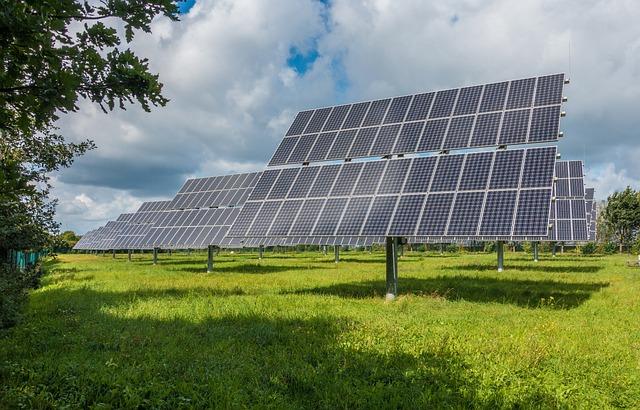- Introduction
- Overview of Ocean Power
- Benefits of Ocean Power
- Challenges Facing Ocean Power
- Future of Ocean Power
- Conclusion
- FAQs
Introduction
Ocean power, also known as marine energy, refers to the energy derived from the ocean's natural resources such as waves, tides, currents, and thermal gradients. This renewable energy source has gained increasing attention due to its potential to provide clean and sustainable power.
Overview of Ocean Power
Ocean power encompasses various technologies that harness the immense energy stored in the oceans. Wave energy converters capture the kinetic energy of ocean waves, while tidal energy systems generate electricity from the ebb and flow of tides. Other methods include using ocean currents and temperature differentials for power generation.

(Image: Pixabay/@mrganso)
These technologies have the potential to provide a consistent and predictable source of renewable energy, reducing reliance on fossil fuels and mitigating climate change. Countries around the world are investing in research and development to harness the power of the ocean for clean energy production.
Benefits of Ocean Power
The utilization of ocean power offers various benefits to both the environment and society. One of the key advantages is that it is a renewable resource, which means it can be replenished naturally and sustainably. This helps reduce greenhouse gas emissions and combat climate change.
Furthermore, ocean power systems have a relatively low environmental impact compared to traditional forms of energy generation. They do not produce air pollutants or greenhouse gases during operation, preserving marine ecosystems and contributing to cleaner air quality.

(Image: Pixabay/@Franz26)
Moreover, ocean power has the potential to create new economic opportunities and jobs in the renewable energy sector. By investing in this technology, countries can enhance energy security, promote innovation, and drive economic growth in coastal regions.
Challenges Facing Ocean Power
Despite its promising potential, ocean power faces several challenges that hinder its widespread adoption. One common obstacle is the high cost of deploying and maintaining marine energy systems. Infrastructure development and grid integration can be complex and expensive processes.
Another challenge is the need to address environmental concerns associated with ocean power projects. The installation of marine energy devices can impact marine habitats and wildlife, requiring thorough environmental assessments and mitigation measures.

(Image: Pixabay/@Rappellingusa)
Additionally, the intermittent nature of some ocean energy sources, such as waves and tides, poses challenges for grid stability and energy management. Innovations in energy storage and grid technologies are necessary to overcome these issues and ensure reliable power supply.
Future of Ocean Power
Despite challenges, the future of ocean power holds significant promise for sustainable energy generation. Continued advancements in technology and policy support can help drive down costs and improve the efficiency of marine energy systems.
As countries strive to meet their clean energy targets and reduce carbon emissions, ocean power is likely to play a crucial role in the energy transition. By tapping into the vast energy potential of the oceans, we can create a more resilient and environmentally friendly energy mix for the future.
Conclusion
Ocean power represents a valuable source of renewable energy that can contribute to a more sustainable and cleaner energy future. While facing challenges, the benefits of harnessing ocean energy far outweigh the drawbacks, offering a path towards reducing our carbon footprint and combating climate change.
FAQs
Is ocean power a reliable source of energy?
Yes, ocean power has the potential to provide a reliable and consistent source of renewable energy, particularly in coastal regions where marine resources are abundant.
What are the main environmental benefits of ocean power?
Ocean power systems have a low environmental impact, as they do not produce harmful emissions during operation. They help reduce greenhouse gas emissions and contribute to a cleaner, greener energy mix.
How can countries incentivize the development of ocean power technologies?
Countries can promote the development of ocean power by offering financial incentives, streamlining regulatory processes, and fostering collaboration between government, industry, and research institutions.

